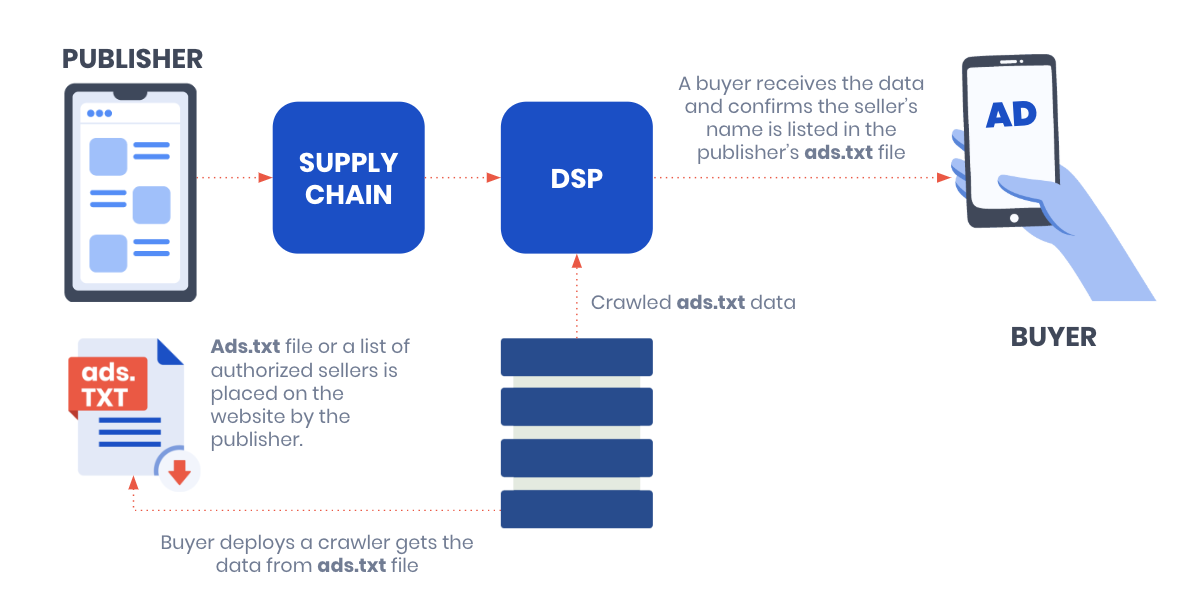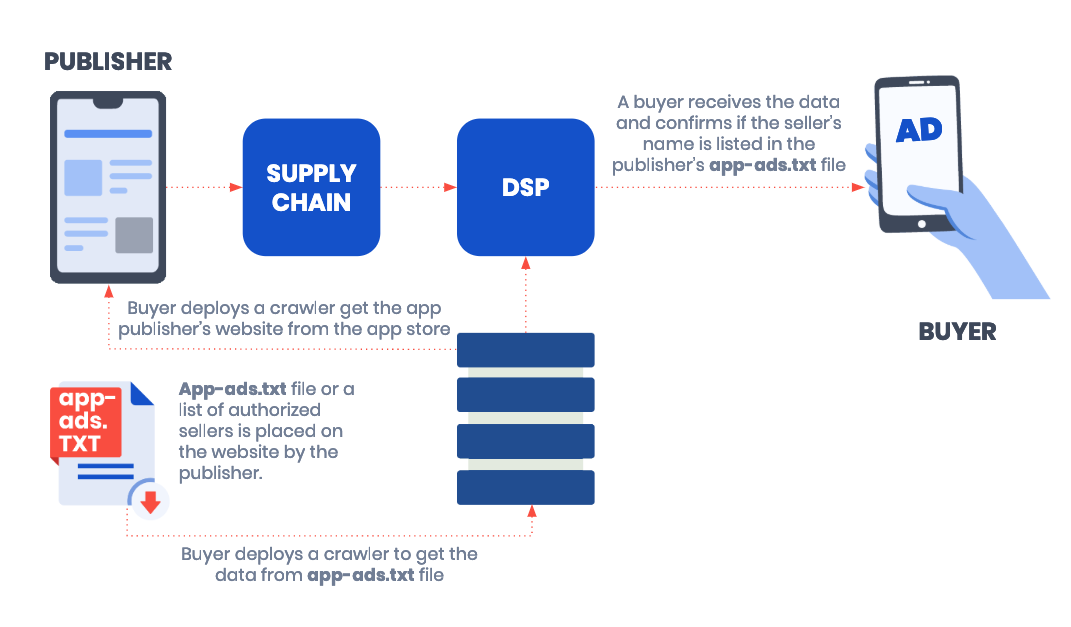- Products
- Resources
- Company
-
For Publishers
-
製品 >
-
InMobiによるアプリ収益化
-
Ads.txt (Authorized Digital Sellers), a solution that helps buyers identify authorized sellers in the programmatic world, was first released in May 2017 for website and mobile web publishers. On November 30, 2018, IAB announced the release of app-ads.txt (Authorized Digital Sellers for Mobile Apps). InMobi has been closely working with IAB to make this release possible.
In the programmatic world where publishers and buyers are not usually in direct contact with one another, unauthorized reselling, counterfeit inventory and domain spoofing have cropped up as major problems.
In all cases, unless the buyer actually contacted the publisher directly, she/he would not know if the ad network/SSP had legitimate access to the publisher’s inventory.
Ads.txt is a simple solution that gives publishers complete control over who is selling their inventory. The publisher creates a depository of authorized sellers that can be accessed by the buyers. Buyers can hence identify the legitimate sellers of the ad inventory they desire.

Think of this scenario, where you wish to purchase a pair of Gucci sunglasses. How would do you identify whether the person selling it to you is authorized to do so? You would not be able to do so without Gucci’s help. Ads.txt works in a similar fashion, as it guides advertisers to make their inventory purchases verifiable - and thus more valuable.
Ads.txt is a great step towards driving transparency in the entire programmatic ecosystem.
With ads.txt, brand advertisers can protect precious advertising dollars from fraudsters and also enhance brand safety.
For publishers, ads.txt is the best solution around. It costs very little and is simple to implement. Brand advertisers will also be willing to pay for and prioritize brand safe legitimate inventory.
Website and mobile web publishers create a .txt file containing the details of authorized sellers and then make it available on their website. The buyers periodically crawl the publisher’s website to update their database of which sellers are authorized to sell the publisher’s inventory. A buyer can then opt to reject bid requests that come from unauthorized sellers.

In the app ecosystem, things work a little differently. The publisher needs to provide the developer website on the app stores. The buyer periodically crawls the app stores to retrieve the website’s address, which is the location of the app-ads.txt file.

As in the case of website/mobile web publishers, the developer website is then crawled to gather information on who is authorized to sell the inventory. The buyer uses this information to reject or accept bid requests that come from various SSPs and ad networks.
At InMobi, we are committed to driving more transparency and control for both our publishers and advertisers, and we believe that app-ads.txt is a great step towards building more trust in the programmatic ecosystem.
We highly recommend all our existing publishers adopt ads.txt to reap the benefits of the initiative.